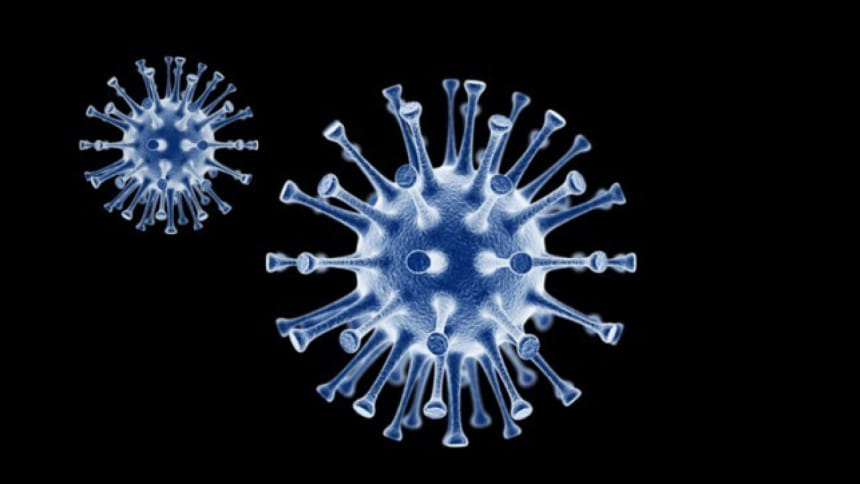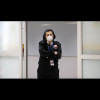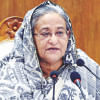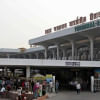Kerala shows the way to tackle COVID-19

As India braces itself to tackle fresh incidences of coronavirus, Kerala's successful handling of the nation's first three positive cases, backed by a rigid protocol, including a 28-day quarantine to contain its spread, offers a model to others.
With a strong chain of command, starting from the health department to field workers, the state has shown the way to the rest of the country on dealing with such an outbreak, health officials here said.
"We have almost contained the situation in Kerala, but that does not mean that we are safe. Yes, we treated and cured three patients, but that does not mean that we will lower our guard," health minister K K Shailaja told PTI.
Kerala, she said, has also decided to intensify surveillance, especially at airports, railway stations and bus depots.
The three positive cases -- all medical students from Wuhan, epicentre of the virus, were reported from Alapuzha, Thrissur and Kasaragod districts. They have been discharged from hospitals and none of them are under home quarantine.
Two of them had travelled by the same flight from Wuhan.
The minister said the health department is fully equipped to deal with the coronavirus scare, guided by the protocol set out by Indian Council of Medical Research and National Institute of Virology.
Explaining how the state dealt with the situation, she said health department officials traced those who returned to Kerala from infected areas and isolated them even if they had minor symptoms. The rest were home quarantined.
"Trained health workers were deployed to assist them. We monitored everyone and held daily review meetings," she said.
Kerala is also the only state which strictly mandates 28 days of home quarantine for those returning from COVID-19 countries, while it is 14 days at the national level.
Dr Amar Fettle, the state Nodal Officer of Public Health Emergency of International Concern, said the cooperation of patients, their families and people of Kerala, who acted as per the health department's directions, deserved laurels.
"We have a strong chain of command, starting from the health minister, the health secretary, directors of health services, medical education, mission directors and all.
"We have very specific instructions on case definitions on what action has to be taken and everything was categorised very well. Matrices were prepared which figured every single situation which would arise," Fettle said.
A senior medical official said the severity of the disease would depend on how three factors (the agent factor, the macro or micro environment of the local area and the immunity of the host), interact in a dynamic fashion.
Interplay of such factors led to a mild manifestation of the infection in the three students, who had only respiratory symptoms.
"We gave them the standard treatment for any respiratory symptoms, including coverage for any other diseases like H1N1 others," the official said.
The health department took supportive measure like antibiotics, when necessary and vitamins ,looked after the diet and even took care of stress levels of the students, he said.
Totally, 4,378 people had been under surveillance at isolation wards in hospitals and home quarantine till March 2.
Till March 3, 411 people were under surveillance in Kerala, the break up being 388 in home quarantine and 23 in isolation wards in hospitals.
Anxiety, stigma and frustration were among many fears voiced by those who returned from China and affected nations.
People are even scared to move anywhere near wards housing those under isolation.
While some students, whose parents are in China, had complained to health officials that they were being made fun of in schools, others said their parents were allegedly prevented by nearby shop owners here to open their commercial establishments, fearing spread of the virus.
To address these issues, the Kerala government came up with motivational messages, SMSs and psychological support.
The medical department is providing counselling services to the affected. All people under home isolation and hospital isolation have been sent motivational messages as SMS.
To provide psychosocial support to families of those suspected to be infected, 215 people have been deployed across Kerala and 3,646 tele counselling services provided till date.
Dr P S Kiran, state nodal officer, Mental Health programme, told PTI "we categorised their experiences, stress, depression and stigma. Most of those quarantined are anxiety prone".
A student said the stigma prevailed even after the 28 day quarantine period, with friends not being allowed to mingle, Dr Kiran said.

 For all latest news, follow The Daily Star's Google News channel.
For all latest news, follow The Daily Star's Google News channel. 








Comments